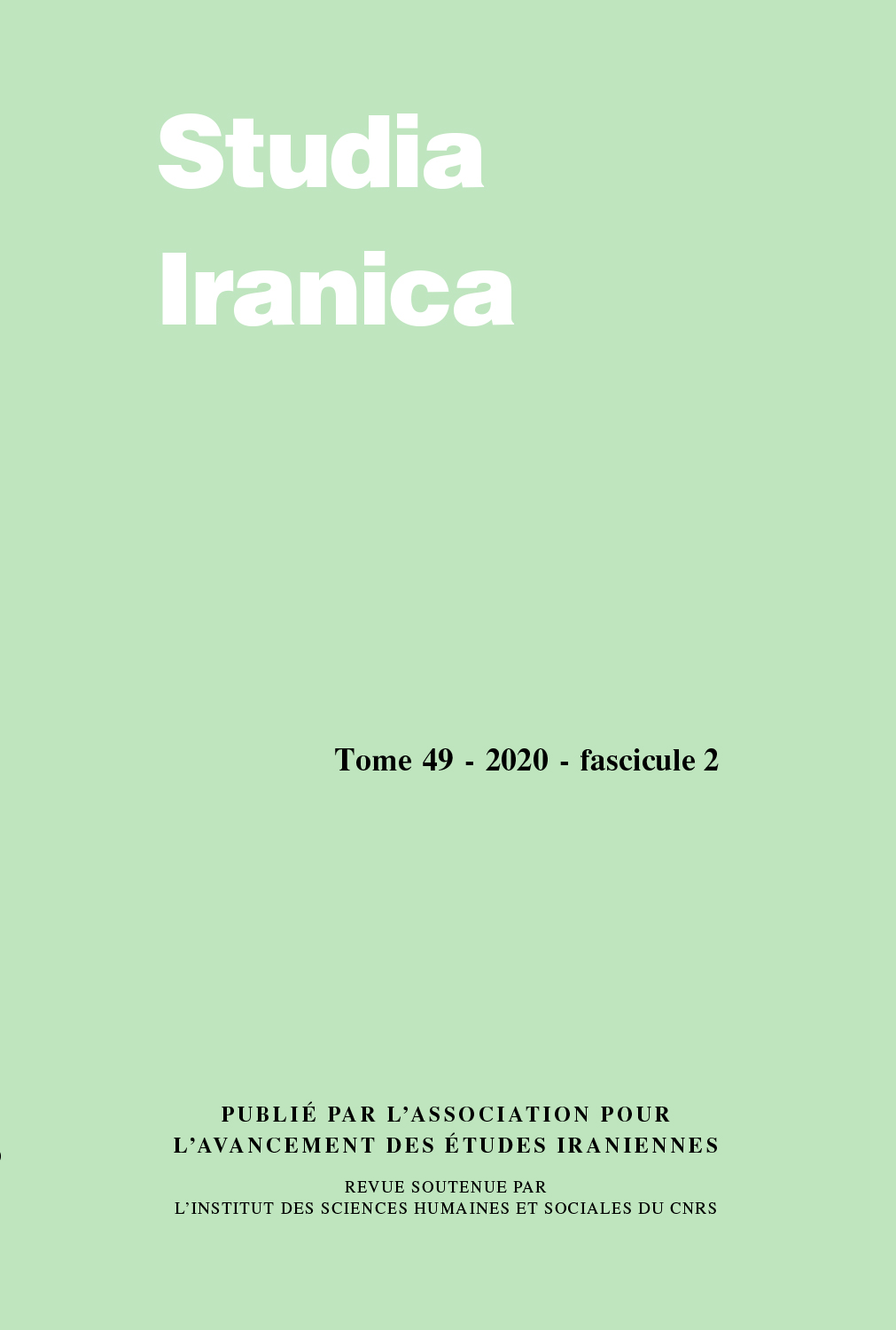 previous article in this issue previous article in this issue | next article in this issue  |

Preview first page |
Document Details : Title: Le «Journal des rêves» de Faḍlullāh Astarābādī Subtitle: Édition et traduction annotée Author(s): MIR-KASIMOV, Orkhan Journal: Studia Iranica Volume: 38 Issue: 2 Date: 2009 Pages: 249-304 DOI: 10.2143/SI.38.2.2046916 Abstract : Faḍlullāh Astarābādī (m. 1396) est le fondateur charismatique du hurufisme, un des mouvements hétérodoxes messianiques qui ont joué un rôle actif en Orient musulman à la suite de l'invasion mongole. Malgré son caractère fragmentaire et allusif, le journal des rêves de Faḍlullāh contient des indications importantes concernant la géographie de ses voyages et les personnes avec lesquelles il entretenait des contacts intellectuels et/ou politiques. Seul écrit connu de Faḍlullāh qu'on puisse qualifier d'autobiographique, ce journal apporte aussi un éclairage personnel sur le parcours spirituel qui a fondé les ambitions messianiques de son auteur. C'est la première édition et la première tentative de traduction intégrale de ce texte à partir du dialecte iranien archaïque d'Astarābād, et une contribution à l'édition de textes ḥurūfī dont la quasi-totalité n'est accessible à présent que par le biais des maniscits. Faḍlullāh Astarābādī (d. 1396) is the charismatic founder of Ḥurūfism, one of the heterodox messianic movements which played an active role on the muslim East in the aftermath of the Mongol invasion. Notwithstanding its fragmented and allusive composition, Faḍlullāh's dream journal contains important clues as to the geographical pattern of his travels and the persons with whom he entertained intellectual and/or political contacts. The only known work of Faḍlullāh which can be considered as 'autobiographical', this journal gives us some personal details on the shaping of a messianic spiritual leader. This is the first edition and the first attempt of an unabridged translation of this text from the archaic Astarābādī Iranian dialect. It is also a contribution to the publishing of the Ḥurūfī texts, the large majority of which is still only available as manuscripts. |
|


